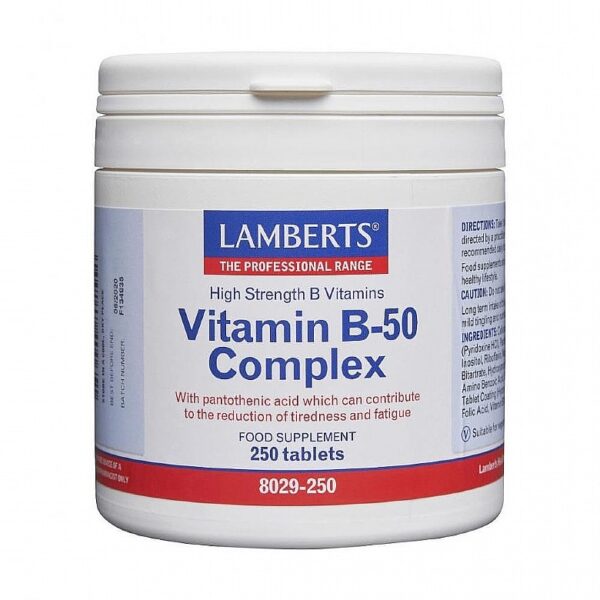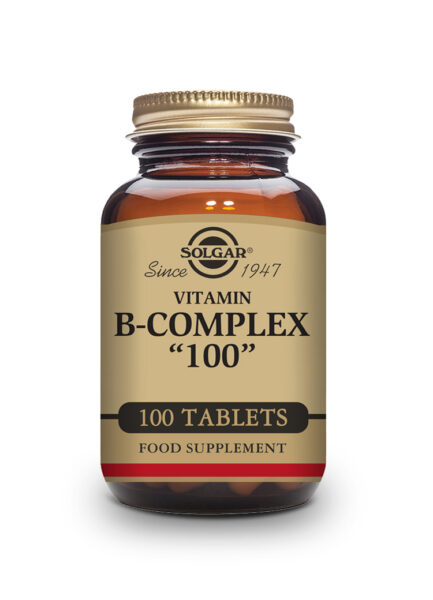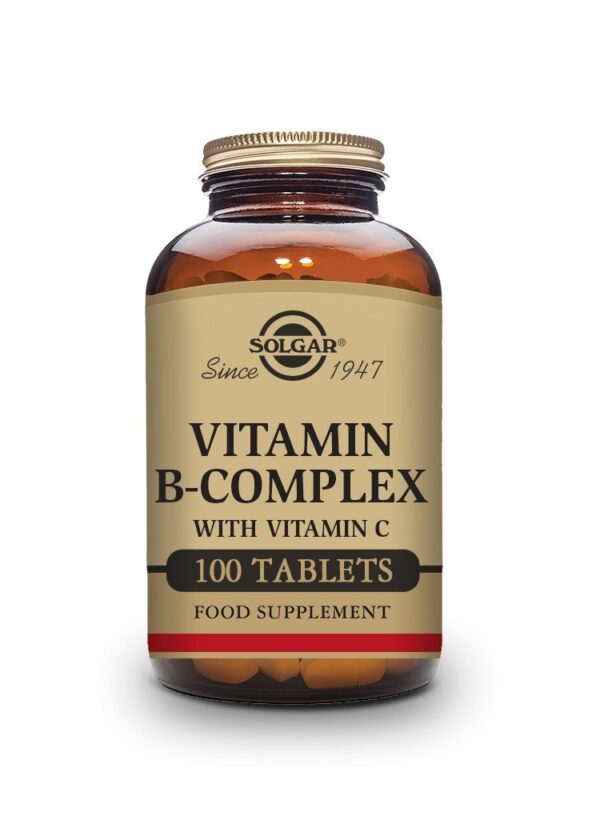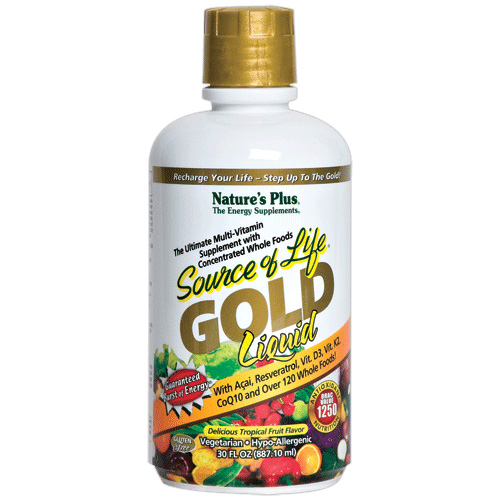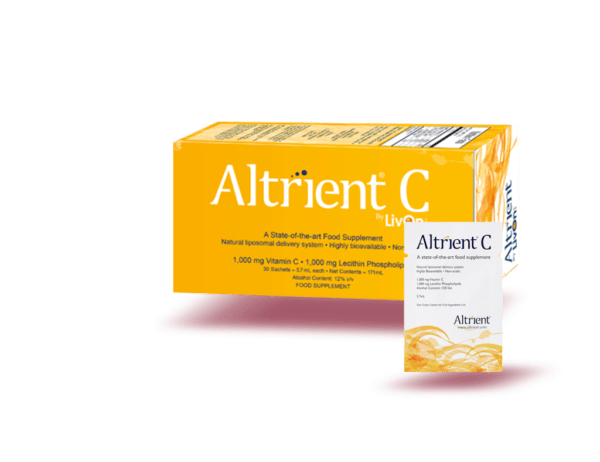Introduction: Understanding Vitamin B Complex
Vitamin B complex is a group of crucial nutrients that maintain our health and well-being. Consisting of a combination of eight different B vitamins, including B1 (thiamine), B2 (riboflavin), B3 (niacin), B5 (pantothenic-acid), B6 (pyridoxine), B7 (biotin), B9 (folic-acid) & B12 (cobalamin), this complex supports various bodily functions and is involved in energy production, metabolism, and the maintenance of a healthy nervous system.
The Importance of Vitamin B Complex
Vitamin B complex is crucial for the proper functioning of our bodies. These vitamins work synergistically to support our metabolism, promote the production of red blood cells, maintain healthy brain function, and aid in converting food into energy. Each B vitamin has specific roles and benefits but forms a powerful complex vital for overall health and wellness.
Exploring the Different Types of Vitamin B
B1 (Thiamine): Thiamine helps convert carbohydrates into energy and plays a role in nerve function.
B2 (Riboflavin): Riboflavin is involved in energy production and supports skin, eyes, and nervous system health.
B3 (Niacin): Niacin is essential for cellular metabolism and supports healthy digestion, skin, and nerve function.
B5 (Pantothenic Acid): Pantothenic acid produces hormones and supports the metabolism of carbohydrates, proteins & fats.
B6 (Pyridoxine): Pyridoxine is essential for brain development, the synthesis of neurotransmitters, and the metabolism of amino acids.
B7 (Biotin): Biotin plays a role in maintaining healthy hair, skin, and nails and supports carbohydrate, protein, and fat metabolism.
B9 (Folic Acid): Folic acid is crucial for DNA synthesis, cell division & the formation of red blood cells.
B12 (Cobalamin): Cobalamin produces red blood cells, nerve function, and DNA synthesis.
Benefits of Vitamin B Complex
Enhanced Energy Levels: Vitamin B complex helps convert food into energy, promoting optimal energy levels throughout the day.
Supports Brain Health: These vitamins play a vital role in maintaining healthy brain function, cognition, and memory.
Healthy Hair, Skin, and Nails: Biotin and other B vitamins contribute to the health and vitality of our hair, skin, and nails.
Cardiovascular Health: Certain B vitamins, such as B6, B9, and B12, help maintain healthy heart function and support cardiovascular health.
Nervous System Support: Vitamin B complex is essential for adequately functioning the nervous system, promoting overall neurological health.
Food Sources of Vitamin B Complex
Incorporating foods rich in vitamin B complex into our diet is crucial. Here are some examples of food sources for each B vitamin:
B1: Whole grains, legumes, nuts, and seeds.
B2: Dairy products, eggs, lean meats, and leafy green vegetables.
B3: Meat, fish, poultry, nuts, and whole grains.
B5: Organ meats, avocados, mushrooms, and sunflower seeds.
B6: Fish, poultry, bananas, potatoes, and fortified cereals.
B7: Eggs, nuts, seeds, and leafy green vegetables.
B9: Leafy green vegetables, legumes, citrus fruits, and fortified grains.
B12: Shellfish, meat, poultry, eggs, and dairy products.
Daily Requirements of Vitamin B Complex
Recommended daily dose of vitamin B complex varies depending on age, gender, and specific health needs. Generally, adults are advised to aim for the following daily amounts:
B1: 1.1-1.2 mg
B2: 1.1-1.3 mg
B3: 14-16 mg
B5: 5 mg
B6: 1.3-1.7 mg
B7: 30 mcg
B9: 400 mcg (600 mcg for pregnant women)
B12: 2.4 mcg
Signs of Vitamin B Deficiency
A deficiency in vitamin B complex can lead to various health issues. Some common signs of deficiency include:
- Fatigue and low energy levels
- Pale skin and weakness
- Digestive problems
- Mood swings and depression
- Cognitive difficulties and poor memory
- Hair loss and skin issues
- Numbness or tingling in the extremities
Vitamin B Complex Supplements: Choosing the Right Option
Sometimes, it may be challenging to meet the recommended daily intake of vitamin B complex through diet alone. In such situations, supplements can be a convenient option. When choosing a vitamin B complex supplement, consider the following factors:
Quality: Look for reputable brands that follow good manufacturing practices.
Ingredients: Ensure the supplement contains all eight B vitamins in adequate amounts.
Dosage: Check the dosage instructions and follow them as recommended.
Form: Supplements are available in various forms, including tablets, capsules, and liquids. Choose one that suits your preference & needs.
Additional Nutrients: Some supplements may include other nutrients or herbal extracts. Assess whether they align with your requirements.
Vitamin B Complex and Overall Health
Vitamin B complex is critical in supporting our overall health and well-being. These essential nutrients are involved in numerous bodily processes, from energy production and metabolism to brain function and cardiovascular health. By incorporating vitamin B complex into our diet or through appropriate supplementation, we can ensure we meet our daily requirements and support optimal health.
Incorporating Vitamin B Complex into Your Diet
To enhance your vitamin B complex intake, consider the following dietary tips:
Eat a Balanced Diet: Focus on consuming a variety of whole foods, including lean proteins, whole grains, fruits, vegetables & dairy, or dairy alternatives.
Include B-Rich Foods: Incorporate foods rich in B vitamins, such as fortified cereals, leafy greens, nuts, seeds, and lean meats.
Cook with Care: Opt for cooking methods that retain the nutrient content of foods, such as steaming, baking, or grilling.
Avoid Overcooking: Excessive heat can destroy some of the B vitamins. Cook foods for shorter durations to preserve their nutritional value.
Consider Food Pairings: Some nutrients enhance the absorption of B vitamins. For example, pairing vitamin C-rich foods with plant-based iron sources can aid absorption.
Explore Our Vitamin B Complex Products
Solgar Vitamin B Complex 100 Tablets
Tips for Maximum Absorption of Vitamin B Complex
To maximize the absorption & utilization of vitamin B complex, follow these tips:
Take with Food: Some B vitamins are better absorbed when consumed with food. Take your vitamin B complex supplement during a meal or as directed by the product instructions.
Avoid Excessive Alcohol: Alcohol can interfere with the absorption and utilization of B vitamins. Limit your alcohol intake for optimal absorption.
Manage Stress: Chronic stress can deplete B vitamin stores in the body. Incorporate stress management techniques like exercise, meditation, or hobbies to support overall well-being.
Stay Hydrated: Proper hydration helps with nutrient absorption. Drink an adequate amount of water throughout the day.
Avoid Smoking: Smoking depletes B vitamins, especially vitamin B9 (folate). Quitting smoking can improve overall nutrient status.
The Role of Vitamin B Complex in Energy Production
Vitamin B complex is closely linked to energy production within our bodies. The B vitamins help convert carbohydrates, proteins, and fats from our diet into usable energy. They facilitate the breakdown of these macronutrients and assist in their efficient metabolism. By ensuring adequate intake of vitamin B complex, we can support optimal energy levels and overall vitality.
Vitamin B Complex and Stress Management
Stress can deplete the body’s B vitamin stores, making it crucial to maintain adequate levels of vitamin B complex during stressful periods. B vitamins support the proper functioning of the nervous system and play a role in the production of neurotransmitters involved in mood regulation. By incorporating vitamin B complex into our diet or through supplementation, we can support our bodies during stress and promote overall well-being.
Conclusion
Vitamin B complex is a group of crucial nutrients that maintain our health and well-being. These vitamins are involved in numerous bodily processes, from energy production and metabolism to brain function and cardiovascular health. Incorporating vitamin B complex into our diet or through appropriate supplementation can help ensure we meet our daily requirements and support optimal health.
FAQs (Frequently Asked Questions)
Is vitamin B complex suitable for vegetarians and vegans?
Yes, vitamin B complex supplements are available in vegetarian and vegan formulations. Look for products specifically labeled as such.
Can vitamin B complex help with hair growth?
While vitamin B complex supports the health of hair, skin, and nails, its direct impact on hair growth is not scientifically proven. Healthy hair growth involves various factors, including overall nutrition and genetics.
Can I take vitamin B complex supplements with other medications?
It’s best to consult your healthcare provider or pharmacist before combining vitamin B complex supplements with other medications to ensure no potential interactions.
What is the recommended time to take vitamin B complex supplements?
Follow the instructions on the supplement packaging. Some people find it helpful to take their vitamin B complex supplement with breakfast or their most important meal for better absorption.
Incorporating vitamin B complex into our daily routine can significantly benefit our health and well-being. From supporting energy production to maintaining brain function and promoting healthy hair, skin, and nails, vitamin B complex plays a crucial role in our bodies. We can optimize our health and vitality by ensuring we meet our daily requirements through diet or supplementation.


